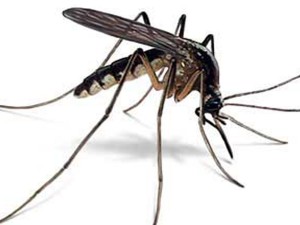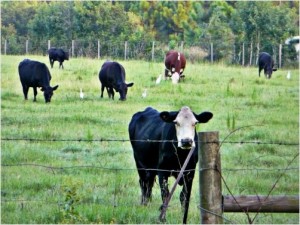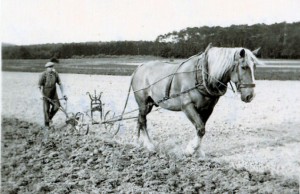 Have you ever wondered what it might feel like to be a mosquito? Probably not, and if you have perhaps you should seek immediate psychiatric help. For the moment though, we’ll pretend its okay to consider becoming a small, annoying pest. The good news about a mosquito is that they belong to a very large family. Cousins, aunts, uncles, brothers and sisters are in abundance, although they come and go rather quickly. Your family name is Culcidae, and there are 3,500 different species in your family. We all know people who can’t go anywhere without meeting a friend (and it’s annoying); mosquitoes are like that.
Have you ever wondered what it might feel like to be a mosquito? Probably not, and if you have perhaps you should seek immediate psychiatric help. For the moment though, we’ll pretend its okay to consider becoming a small, annoying pest. The good news about a mosquito is that they belong to a very large family. Cousins, aunts, uncles, brothers and sisters are in abundance, although they come and go rather quickly. Your family name is Culcidae, and there are 3,500 different species in your family. We all know people who can’t go anywhere without meeting a friend (and it’s annoying); mosquitoes are like that.
Tag Archives: trust
To Teach or Preach?
 There is a thin line, (sometimes it’s a fishing line so it appears invisible), which separates preaching from teaching; especially if the topic is your children’s behavior, or religion. Discussions about God and spirituality may start with the noble intention to teach, but through various hairpin curves and hidden trap doors, evolve mysteriously into full blown, sweat filled, amen-alleluia, God-is-a-coming-soon, sermons. They become the type of interaction where everybody is wet with perspiration – no matter the temperature inside or out. With all nobility swept aside, a dialogue into your kid’s behavior barely stays a nanosecond in the teaching mode before leaping at warp speed into preaching. Of course, that is how it should be: they need it.
There is a thin line, (sometimes it’s a fishing line so it appears invisible), which separates preaching from teaching; especially if the topic is your children’s behavior, or religion. Discussions about God and spirituality may start with the noble intention to teach, but through various hairpin curves and hidden trap doors, evolve mysteriously into full blown, sweat filled, amen-alleluia, God-is-a-coming-soon, sermons. They become the type of interaction where everybody is wet with perspiration – no matter the temperature inside or out. With all nobility swept aside, a dialogue into your kid’s behavior barely stays a nanosecond in the teaching mode before leaping at warp speed into preaching. Of course, that is how it should be: they need it.
Each communication method has its own benefits and hindrances; the use of either is not a matter of right vs. wrong, but more a selection of appropriate timing. Teaching, or coaching as it is called in sports, is a service that is nearly unencumbered as to “when” it is applied; it is always acceptable to teach. Circumstances and companions will dictate the depth and length of the lesson; which, subject to your role as teacher or student, can range from a moment to seemingly, an eternity. Yet with all viewpoints included, teaching is mostly about giving. One person gives their knowledge, experience, or opinion to another – it is meant to be an unselfish act of sharing. The acceptance of all, or part of the lesson, is completely the responsibility and choice, of the recipient. I think that is where to “leading a horse to water…” saying came from.
You’re Welcome
 As Thanksgiving approaches there will be numerous articles written, radio programs broadcasted, and television shows aired bringing to our attention the need to be thankful. Setting aside one day a year to remember, and acknowledge all the reasons we have to be thankful is a very good tradition. I encourage everyone to embrace this holiday; to be with friends and family and carefully consider how lucky we are to be American’s, living where we do, having food in the pantry and people who love us. Only, my goal this season was not to write about Thanksgiving simply because everyone else is, yet here I am mentioning Thanksgiving three times in the first paragraph. So, I’ve decided instead to focus my writing on You’re Welcome; it’s what happens after thanks.
As Thanksgiving approaches there will be numerous articles written, radio programs broadcasted, and television shows aired bringing to our attention the need to be thankful. Setting aside one day a year to remember, and acknowledge all the reasons we have to be thankful is a very good tradition. I encourage everyone to embrace this holiday; to be with friends and family and carefully consider how lucky we are to be American’s, living where we do, having food in the pantry and people who love us. Only, my goal this season was not to write about Thanksgiving simply because everyone else is, yet here I am mentioning Thanksgiving three times in the first paragraph. So, I’ve decided instead to focus my writing on You’re Welcome; it’s what happens after thanks.
Saying “You’re welcome” is the finale of a three part process initiated by an action; not just any action though. For instance, stepping on someone’s foot while dancing doesn’t usually lead to you’re welcome, nor would denting a car door in the grocery store parking lot. To arrive at the desired good outcome, the first step is to do something that brings joy, happiness, relief, comfort or love to another person, whether you know that person or not. An action is needed to start the process. Being thankful unto itself normally is a passive experience, and living in the level of good fortune that we do, begs for more than a passive gratitude.
Heroes
Heroes
 “Dudley Do-Right, you are my hero!” was the all-encompassing praise of Nell, the ever so sweet girlfriend want-to-be of the good mannered, yet bumbling Canadian Mountie. Dudley’s goal in life, at least on the 1970’s cartoon, was to be Nell’s hero. Not a bad goal. We humans have, since the beginning of recorded history, searched for, and identified with a hero figure; someone that we want to emulate. Heroes are larger than life, they overcome great obstacles; heroes are fast, smart, typically good looking, wise, caring, brutal when dealing with a bad guy; yet humble, and kind to birds, kittens and bunny rabbits. Everyone wants to be a hero (at least secretly), and identifies with someone living, or from the past, that they call hero. Warriors have typically made good heroes for little boys, pitting good versus evil at terrible odds; but somehow good always triumphs. To be a hero it is important to win big and often. Explorers also commonly fall into the hero category, especially those who travel in either a wooden ship with many large sails, or a spacecraft with a single large engine; these explorers set out for places where “no one has gone before.” It is also important for a hero not to go to the same place over and over again, but to seek out exciting and dangerous new places. It is easier to be a hero if you are the creation in a book or movie, where life has a script to follow, and the writer can make certain that immoral choices are never made; where compromise is unknown and everyone (except for the bad guys) follows the rules. Life is much harder for the hero who lives, breathes, and makes decisions for themselves. We cannot just erase a bad drawing and start anew; real heroes, and their worshipers, must live with the consequences of a corrupt page.
“Dudley Do-Right, you are my hero!” was the all-encompassing praise of Nell, the ever so sweet girlfriend want-to-be of the good mannered, yet bumbling Canadian Mountie. Dudley’s goal in life, at least on the 1970’s cartoon, was to be Nell’s hero. Not a bad goal. We humans have, since the beginning of recorded history, searched for, and identified with a hero figure; someone that we want to emulate. Heroes are larger than life, they overcome great obstacles; heroes are fast, smart, typically good looking, wise, caring, brutal when dealing with a bad guy; yet humble, and kind to birds, kittens and bunny rabbits. Everyone wants to be a hero (at least secretly), and identifies with someone living, or from the past, that they call hero. Warriors have typically made good heroes for little boys, pitting good versus evil at terrible odds; but somehow good always triumphs. To be a hero it is important to win big and often. Explorers also commonly fall into the hero category, especially those who travel in either a wooden ship with many large sails, or a spacecraft with a single large engine; these explorers set out for places where “no one has gone before.” It is also important for a hero not to go to the same place over and over again, but to seek out exciting and dangerous new places. It is easier to be a hero if you are the creation in a book or movie, where life has a script to follow, and the writer can make certain that immoral choices are never made; where compromise is unknown and everyone (except for the bad guys) follows the rules. Life is much harder for the hero who lives, breathes, and makes decisions for themselves. We cannot just erase a bad drawing and start anew; real heroes, and their worshipers, must live with the consequences of a corrupt page.
We also like to expand the life of a hero into that of a role model. Not only will we praise the hero, and dream of them, but we will try to live just like our hero. “I want to be just like (fill in the blank) when I grow up.” John F Kennedy was a charismatic leader with true vision, and a great love for his country. Martin Luther King envisioned a better way to find the promise land, here at home. Neil Armstrong walked on the moon – we all saw it on TV. My list of heroes and role models included these people, and many more – sports figures, local celebrities, and of course, my Mother and Father. My parents were not always the hero in the moment, it was as I grew older, and had children of my own that their heroism became apparent.
Also, as I have aged, the reality that a hero / role model was imperfect has become abundantly clear. Heroes are people, and people are flawed; that was not a fact when I was ten, but it is now. Still, a person became my hero because of something specific that they were, or did: best batting average, first on the moon, amazing speech, or the finest example of character I have ever seen. Being human does not remove the heroic achievement, it gives it perspective. So, to cope with the reality of human heroes, we filter out the corrupt pages and only view the ones that fit the profile of our hero: kind, strong, wise, caring, decisive, moral, and fearless – a perfect role model as defined within our very human mind. The other pages: immoral, thief, liar, cheat, adulterer – they are torn out and cast aside, because they do not fit a hero’s mold. It is a very natural compromise, arising from the need to have a hero in our life, and the realization that a hero cannot be perfect in all things. I still keep heroes, who are human and very flawed; because I need them, and I think they need me. But, I realize, as I hope they do, that we are all a part of humanity, so perfection never enters into the conversation.
When I have a need for a flawless hero, I get on my knees and look up. I do this daily to remind myself, and Him, that perfection found its way to earth just once, and left an everlasting impression on all of us.
Thanks for reading.
Cows Standing In a Field
 Driving to work I pass by many fields supporting various agricultural delights: corn, tomatoes, grapes, pears, and peaches to name a few. The most interesting field though, is the one that houses the cows. Big, Black Angus and white faced Herefords stand majestically, always seeming to face in the same direction, their heads slowly dropping down to pull up a pound or so of grass, then slowly raising again to munch their lunch. I noticed that they never actually finish lunch; it is an endless goal the cows keep trying to reach – all day long. At first glance, cows may seem less sophisticated than almost anything; not very interesting at all, but on closer inspection the average Angus reveals a methodic intelligence and sense of purpose that is easily overlooked. That big, smelly, slow moving creature may even display brief moments of wisdom.
Driving to work I pass by many fields supporting various agricultural delights: corn, tomatoes, grapes, pears, and peaches to name a few. The most interesting field though, is the one that houses the cows. Big, Black Angus and white faced Herefords stand majestically, always seeming to face in the same direction, their heads slowly dropping down to pull up a pound or so of grass, then slowly raising again to munch their lunch. I noticed that they never actually finish lunch; it is an endless goal the cows keep trying to reach – all day long. At first glance, cows may seem less sophisticated than almost anything; not very interesting at all, but on closer inspection the average Angus reveals a methodic intelligence and sense of purpose that is easily overlooked. That big, smelly, slow moving creature may even display brief moments of wisdom.
Free Fall
 Imagine you are in a small plane, flying at 10,000 feet above South Placer County. It is a clear autumn morning, the sun is up but only producing a brisk 58 degrees; there is a moment of white on the Sierra Nevada Mountains, signaling the first of many snow storms had arrived last night. Dressed in jeans, tennis shoes and a tee shirt (if you are a girl, the outfit matches; if a guy, then you don’t care), you can feel the cold outside the plane, which is ten degrees lower than on the valley floor. You slide open the passenger door of the four passenger Piper; the wind instantly tears through the interior creating a tornado like effect with the few papers on the dash. The velocity of the chilled air striking your bear arms makes you believe you now know what it must feel like to be lost in a blizzard – in a bathing suit. (You were always one for drama!). Unbuckling your seat belt, you send a nod to the pilot, place both feet on the door threshold, and jump. In less than a second, the plane is a distant memory.
Imagine you are in a small plane, flying at 10,000 feet above South Placer County. It is a clear autumn morning, the sun is up but only producing a brisk 58 degrees; there is a moment of white on the Sierra Nevada Mountains, signaling the first of many snow storms had arrived last night. Dressed in jeans, tennis shoes and a tee shirt (if you are a girl, the outfit matches; if a guy, then you don’t care), you can feel the cold outside the plane, which is ten degrees lower than on the valley floor. You slide open the passenger door of the four passenger Piper; the wind instantly tears through the interior creating a tornado like effect with the few papers on the dash. The velocity of the chilled air striking your bear arms makes you believe you now know what it must feel like to be lost in a blizzard – in a bathing suit. (You were always one for drama!). Unbuckling your seat belt, you send a nod to the pilot, place both feet on the door threshold, and jump. In less than a second, the plane is a distant memory.
As Newton predicted, you fall towards the earth accelerating at 32 feet per second. Depending upon your weight, and position while dropping, you will reach terminal velocity in 7-10 seconds. This is the point where your descent speed can no longer increase, but remains constant at about 125 miles per hour due to the friction of the surrounding air. Kind of a good news / bad news story: you’re not falling any faster, but you are falling real fast. It will take another minute to find the ground, but a lot can happen in a minute.
Hook Up The Plow Horse
 If you were a farmer 100 years ago, you might have used a plow horse to pull the metal plow to turn and mix the soil until it was sufficiently prepared to plant the seeds. The horse was meant to do the bulk of the labor; dragging the heavy plow through good soil and bad, while the farmer kept the horse in a straight line. A plow horse didn’t have to move swiftly to be considered good at its job, it needed to be consistent and dependable; always moving forward toward its goal, without much complaining or urging – a good plow horse wanted to plow the field. It knew every morning that the day would bring some rocky, dry, hard spots and, some places that were level and smooth; but, it didn’t matter, the plow horse would work its way through all of it, under the carful guidance of its farmer.
If you were a farmer 100 years ago, you might have used a plow horse to pull the metal plow to turn and mix the soil until it was sufficiently prepared to plant the seeds. The horse was meant to do the bulk of the labor; dragging the heavy plow through good soil and bad, while the farmer kept the horse in a straight line. A plow horse didn’t have to move swiftly to be considered good at its job, it needed to be consistent and dependable; always moving forward toward its goal, without much complaining or urging – a good plow horse wanted to plow the field. It knew every morning that the day would bring some rocky, dry, hard spots and, some places that were level and smooth; but, it didn’t matter, the plow horse would work its way through all of it, under the carful guidance of its farmer.
People Watching
 I am still sitting in terminal 1 in the C concourse at Chicago O’Hare airport on the 14th hour of delay, waiting for a flight home. The monitor, which I no longer believe, says that I still have two more hours to wait. So, I do what everyone does under these circumstances; I slouch in my uncomfortable faux leather chair, crossing and uncrossing my legs to maintain circulation, and watch people walk by.
I am still sitting in terminal 1 in the C concourse at Chicago O’Hare airport on the 14th hour of delay, waiting for a flight home. The monitor, which I no longer believe, says that I still have two more hours to wait. So, I do what everyone does under these circumstances; I slouch in my uncomfortable faux leather chair, crossing and uncrossing my legs to maintain circulation, and watch people walk by.
There is a lot of talk about diversity, how everybody is different and the difference is good for everyone. Well, in this airport I have found the grand slam of diversity. I have seen every shape, size and color of person meander by my perch in just the last 30 minutes. I have a great location to watch and write about the world, and I don’t think I can even type fast enough to capture all that I see. My plan is simple; I will smile at random people walking past, not too obvious-just a pleasant hello kind of smile, and note their reaction. Here we go:
